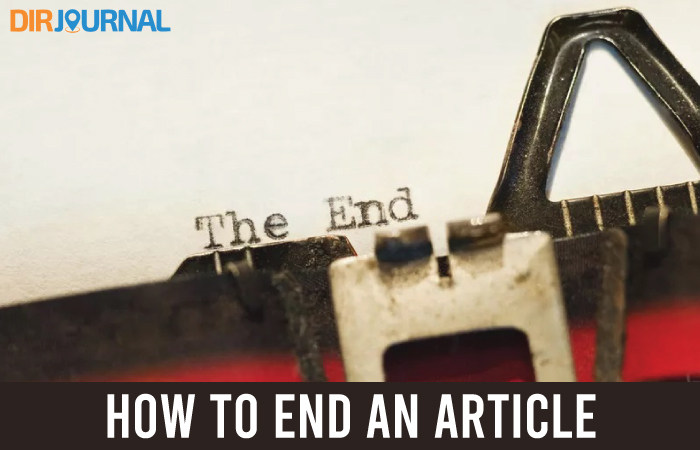Two years ago I shared a few brief tips on How to Write a Strong Conclusion. My original list was:
- Summarize your objective
- Include supporting thoughts
- Clearly show why the piece is important
- Ask questions
- Involve the reader
- Don’t add new material
- Answer why the paper was written
- Don’t start your conclusion with “in conclusion” (or variations thereof).
Now, allow me to elaborate.
1) Summarize your Objective
Send the point home. Don’t just rehash what you’ve said, be engaging. Get readers to return to your blog or website. And don’t forget to tie your article to products or services you offer (where appropriate, without being spammy).
2) Include Supporting Thoughts
There is a fine line between including supporting thoughts and sharing a whole new idea. Do the former, not the later.
3) Clearly Show Why the Piece is Important
This will be difficult to do if you don’t know why you’re writing. Perhaps share some personal or business application for what you’ve just taught your audience.
4) Ask Questions
Questions aren’t just for titles and opening lines. Questions are a great way to end a post. Get readers to discuss in the comments. Don’t overwhelm with more than one or two questions, however.
5) Involve the Reader
Ask your reader to take action. If your post is practical and persuasive, readers will be more likely to return to your website or blog. An action could also be asking for comments or social shares.
Don’t assume readers will notice your G+ button, tell them it’s there. In email, ask readers to forward to a friend. (Remember the best way to get more readers like the ones you have now, is by reaching out to their friends.)
6) Don’t add New Material
This may be the place to summarize, but you shouldn’t bring in something totally new. If you have an article on a similar topic or the next step in the process, link to it here. Telling them what your next post will be about is okay, too.
7) Answer Why the Paper was Written
Did you write to move someone to action? If your article is on how Americans waste water, it may be interesting in of itself, but are you encouraging readers to conserve water? Maybe something motivational at the end of the article would be appropriate. This ties in well with the tip to “Involve the Reader.”
8) Don’t Write “In Conclusion”
(Or variations thereof.) So maybe this is just a personal pet peeve, but you shouldn’t have to announce that the article is coming to an end. This should be self explanatory. Take out the “In Conclusion.” You’re likely to find that the article is stronger without it.
Do you write masterful conclusions? Please share a link or tip in the comments below.
And don’t forget to tweet this to your followers.








that is really helpful really because i face problems when i end or start an article.when i start writing i got a very good material and subjects but i feel i am weak in starting & finishing it. you have been a great help thanks
now i tried so many methods to end an article and by far this is the best advice i’ve found i really think i should share this with the class it would make my life just that much easier. thanks for sharing